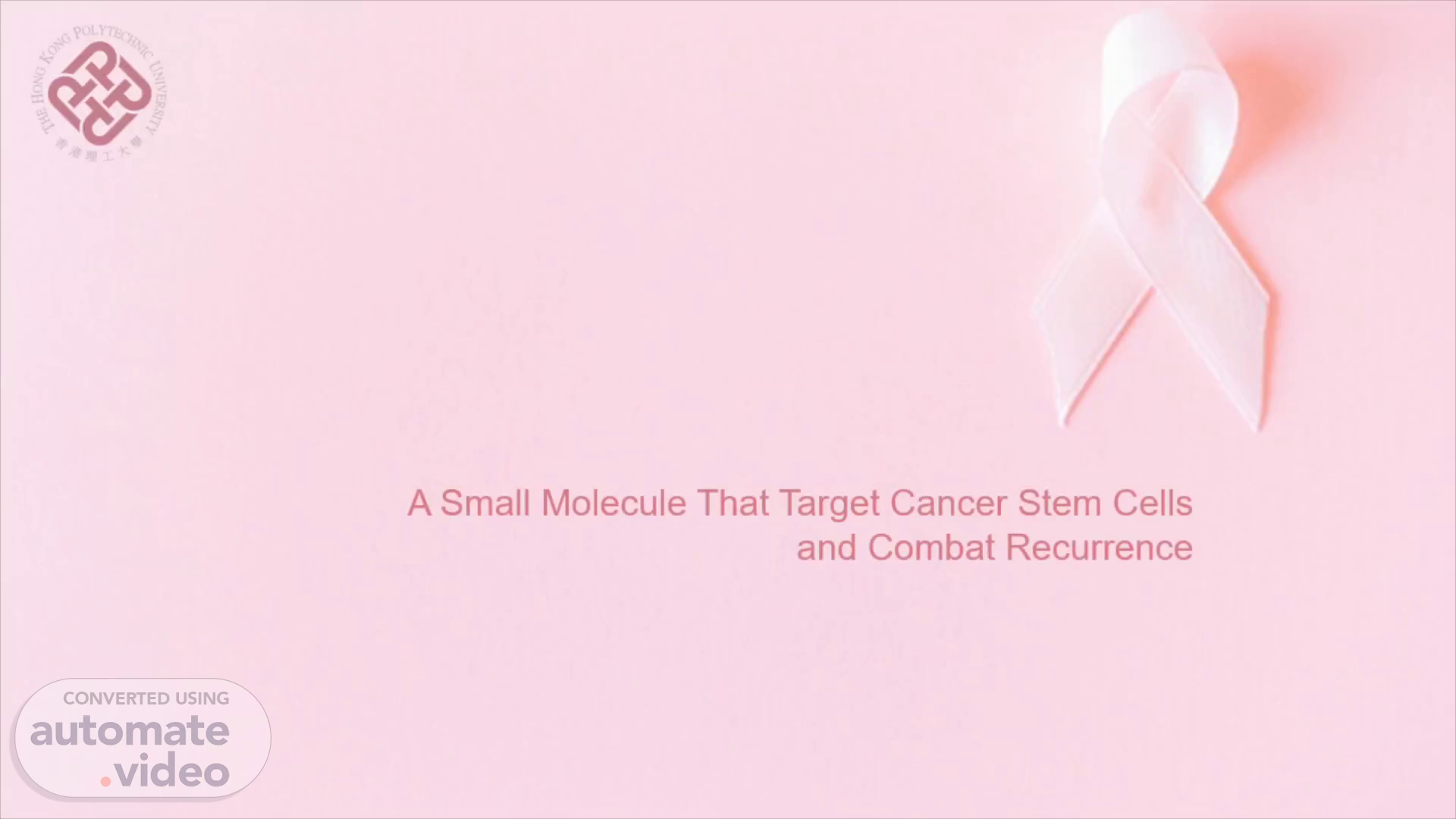
Page 1 (0s)
[Audio] This presentation is about treating breast cancer by targeting the cancer stem cells..
Page 2 (7s)
[Audio] Breast cancer is the most prevalent cancer in Hong Kong and Globally with 1.7 million new cases diagnosed in 2020 and half a million deaths, accounting for one tenth of all cancers..
Page 3 (18s)
[Audio] Cancer stem cells are a small population of highly drug resistant cells compared to non-cancer stem cells. They remain after chemotherapy and causes relapse, metastasis and reduce patient survival. Removing cancer stem cells are crucial for effective chemotherapy treatment.
Page 4 (29s)
[Audio] We have modified natural products like apigenin, commonly found in celery, and used them for various anti cancer uses, like reversal of drug resistance, oral cancer drug and brain cancer drug. Here, we will use them to reverse breast cancer stem cell drug resistance..
Page 5 (49s)
[Audio] Fifteen 2 can reverse the drug resistance level of non-cancer stem cells by 5 folds and cancer stem cells by about 138 folds..
Page 6 (59s)
[Audio] It can also reduce the cancer stem cell formation by 15 folds..
Page 7 (1m 6s)
[Audio] Fifteen 2, in combination with cancer drug, was highly effective in reducing the cancer size in the animal model, as illustrated in the flat purple line. This is about 90% more effective than the control or cancer drug alone..
Page 8 (1m 22s)
[Audio] The combination treatment of cancer drug with fifteen 2, shown as purple line, has similar body weight changes as other controls, suggesting that fifteen two itself was safe to use..
Page 9 (1m 35s)
[Audio] Mechanism. Some cancer drug can produce reactive oxygen species, which can damage the DNA and other cellular components. The cancer stem cells are very smart by using a protein called Peridoxin 1 or P R D X one to neutralize the reactive oxygen species and avoid the killing. But fifteen two can inhibit peridoxin 1, removing the shield of cancer stem cells and sensitizing them to the anticancer drugs...
Page 10 (2m 7s)
[Audio] Cancer treatment or oncology, represents the largest market in the pharma industry with a continuing upward trend, reaching 320 million US dollars by 2028. And breast cancer treatment is the fastest growing segment..
Page 11 (2m 24s)
[Audio] Our team includes Prof Larry Chow, a Harvard-trained biochemist. Co-inventor Prof Bill Chan, a world-renowned synthetic chemist. CEO, Ms Gege Sun and Dr. Iris Wong. We expect to complete the detailed animal efficacy and toxicity study in 2023, file Investigational New Drug status in 2024 and phase 1 clinical trial in 2025..
Page 12 (2m 54s)
[Audio] Thanks for your kind attention.. Thank you for your kind attention.